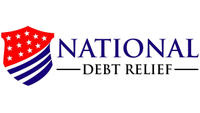As ever, the method of how to borrow money smarter will always depend on your personal circumstances, and the below advice is based on our experience, expertise, and research. If you are ever in doubt, we recommend you consult a financial advisor or a specialist in whatever type of borrowing you’re considering (for example, a mortgage advisor).
Worst ways to borrow
Sometimes you need money fast, and may feel trapped by a low credit score. However, you should think very carefully if you’re considering one of the following options, as they are risky and expensive ways to borrow. Take a look at our best credit repair services (opens in new tab) guide, if you want to help fix your credit rating. You should also consider your debt to income ratio (opens in new tab) too.
Payday loans
Picking up Payday loans online (opens in new tab) can be a quick and easy way of getting access to cash if you find yourself short one month. Because no credit checks are carried out, payday loans can be particularly attractive to those with bad credit, and according to Bloomberg over 12 million Americans (opens in new tab) use Payday loans annually. Many states set maximum loan limits, but you can usually borrow anything between $50 and $1,000. However, these short-term loans, which are usually due to be paid back in a lump sum after either two weeks or a month, are an incredibly expensive way to borrow. Interest rates on payday loans are often capped by each state, but they can still be between 100% and 700% Annual Percentage Rate (APR). Payday loans should therefore only ever be considered as a last resort in the event of an emergency.
Title loans
Title loans are a type of secured loan which means you’ll need to put up collateral to get the funds. In the case of title loans, this is the title to your car. Like payday loans, you don’t need good credit to be approved for a title loan and the loan is usually short-term, so you’ll need to repay it after 30 days. The amount you can borrow will depend on an assessment of your car’s value. But – just as with payday loans - interest rates for title loans are sky-high, often around 300% APR. On top of this, you’ll need to pay a finance charge which can be as much as $125 for a $500 loan. Title loans can be a risky way to borrow. If you are not able to repay the loan in full at the end of the term, you risk losing your car, unless you agree with the lender to roll over the loan into a new one. If this happens, further interest and fees will be added. A study (opens in new tab) by the Consumer Finance Protection Bureau found that one in five loans end in car repossession. And although these loans don’t affect your credit, getting your car repossessed can stay on your credit report for up to seven years. It’s therefore best to avoid title loans if you can.
Pawnshop loans
With a pawnshop loan, you can borrow money so long as you leave something valuable enough to cover the loan as security. No credit checks are carried out, but interest rates can be high, and fees are often charged on top. You’ll usually have to agree to a timeframe in which you will repay the loan – this can be between 30 days and a few months. If you can’t repay the loan within that time, you may be able to extend or renew the loan. If not, your valuable item will be sold, which can be particularly upsetting if it had sentimental value.
Credit card cash advance
Withdrawing money from an ATM on your credit card is known as a cash advance. You can also get a cash advance via a check from your card issuer. You then pay back the amount borrowed in monthly instalments, just as you would if you used your card for purchases. The big disadvantage, however, is there is no grace period with a cash advance, so you will start accruing interest on the balance as soon as you have withdrawn your cash. This is the case even if you pay off your balance in full. Because of this, and the fact interest rates on cash advances are usually higher than for purchases, it can be a very expensive way to borrow. There is also a cash advance fee of 3% to 5% to pay, and there may be ATM fee too.
Store cards
Store cards work in the same way as standard credit cards, allowing you to buy an item now, but pay later. Closed-loop cards can only be used in certain retailers, whilst open-loop cards can be used anywhere within a card’s network. Many retailers try to tempt shoppers to sign up for a store card or retail card by offering significant discounts on purchases or cash back rewards. But the main problem with them is that interest rates are often much higher than on standard credit cards. To avoid this, it’s important to pay off the full balance on the card each billing cycle, or simply resist temptation and don’t sign up for one.
Best ways to borrow
If you have a major purchase coming up, there are cheaper and better ways to fund it. We’ve highlighted three options below.
0% APR credit cards
A 0% APR credit card allows you to avoid paying interest on purchases for a set number of months. In some cases, this can be as long as 18 months, although the best 0% APR credit cards are only offered to those with good credit. Providing you make at least the minimum repayment each month and pay off your balance before the 0% APR deal ends, using this type of credit card can be a cheap way to borrow. But keep in mind if you haven’t cleared your balance before the 0% introductory APR period ends, you’ll start paying interest at the standard rate. You may also find that some of the best rewards credit cards (opens in new tab) actually give you cash-back and incentives, in addition to 0% APR.
Personal or unsecured loans
With most of the best personal loans online (opens in new tab), you don’t have to put down collateral to qualify, which is why they are also known as unsecured loans. Once you have received your funds – which you can usually use for anything you like - you will pay fixed monthly payments, making budgeting easier. Interest rates can vary and the rate you are offered will depend on your credit score. This means the most competitive rates will typically be offered to those with good credit. Lenders may also take your income into account. If you apply for a personal loan, you can typically borrow between $1,000 and $100,000 and your loan will need to be repaid between one to seven years, depending on the lender. Keep in mind if you default on your loan, your credit score will take a hit, so it’s a good idea to set up auto repayments on your bank account to make sure you repay on time.
Credit unions
Credit unions are not-for-profit organizations that provide traditional banking services and are member owned. Because of this, they can focus on the needs of their members rather than profits, and interest rates on loans can be more favourable than elsewhere. This is the case even if you have an average or poor credit score. Credit unions can offer secured and unsecured personal loans, but keep in mind secured loans require you to make a deposit as collateral. You won’t get this back if you default on the loan. Also be aware you need to meet a credit union’s membership requirements before you can become a member. These requirements might include working for a certain employer or living in a particular area.
What to do about debt
If you do find yourself in financial trouble, borrowing more money may not be the solution for you. We recommend speaking to National Debt Relief (opens in new tab) if you are concerned about the level of debt you find yourself in. If this provider doesn’t suit your needs, please consider our guide to the best debt settlement companies (opens in new tab) to help with your requirements. Alternatively, the best debt consolidation companies (opens in new tab) will help you manage all your payments more effectively.

